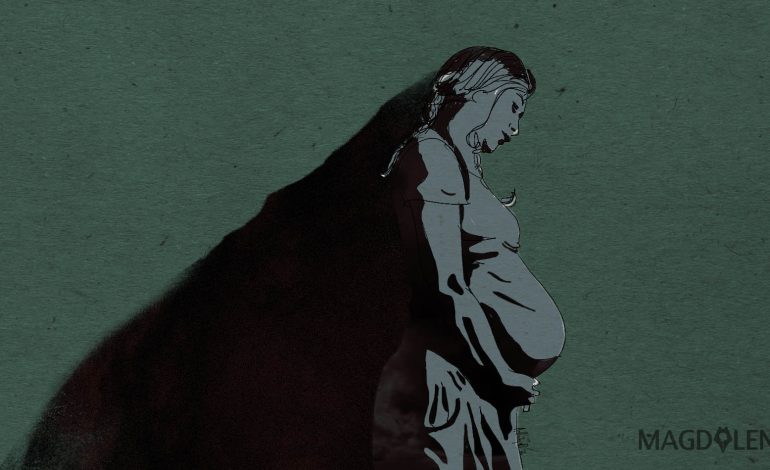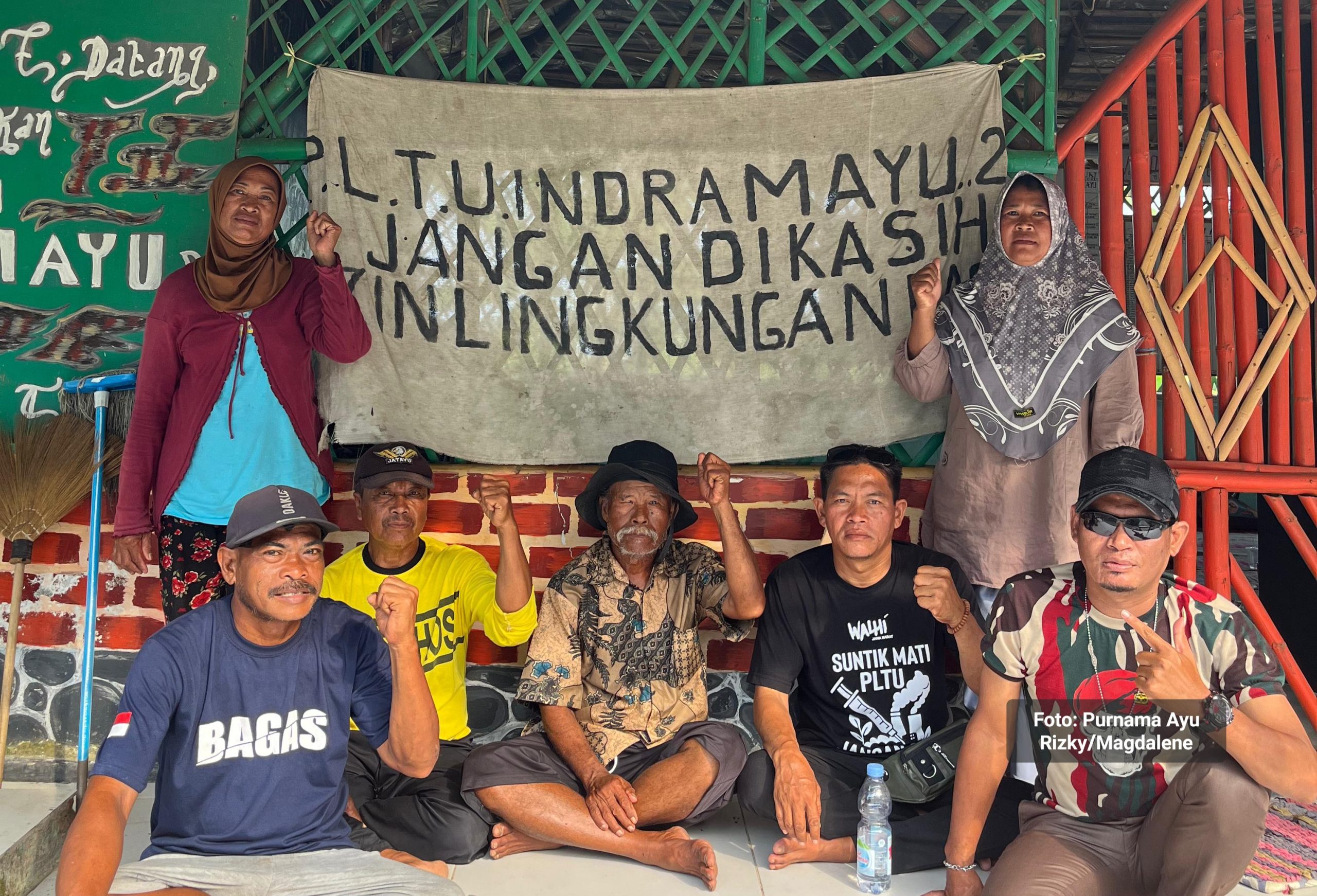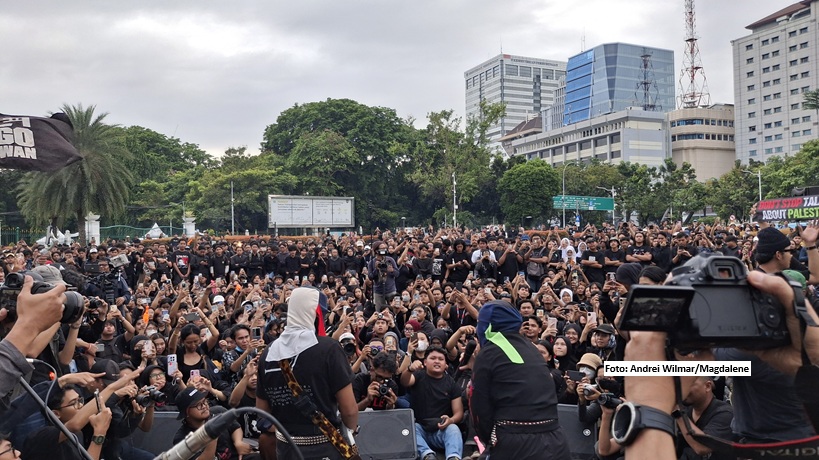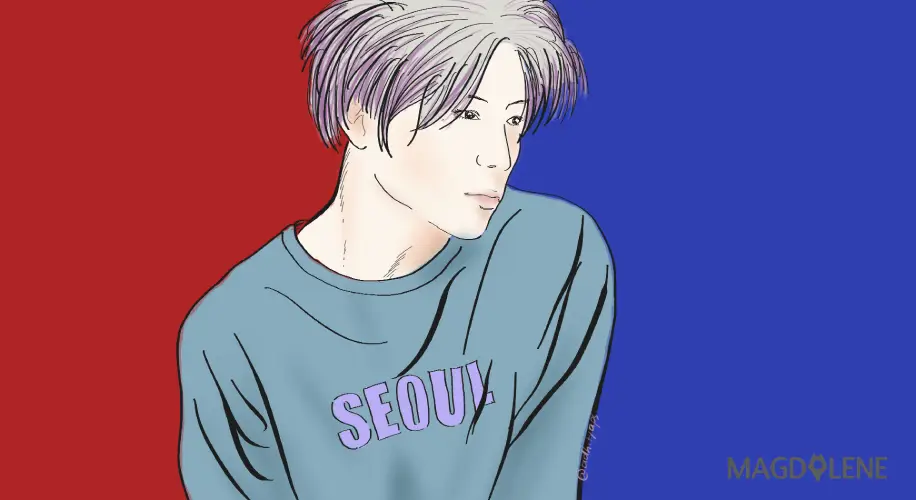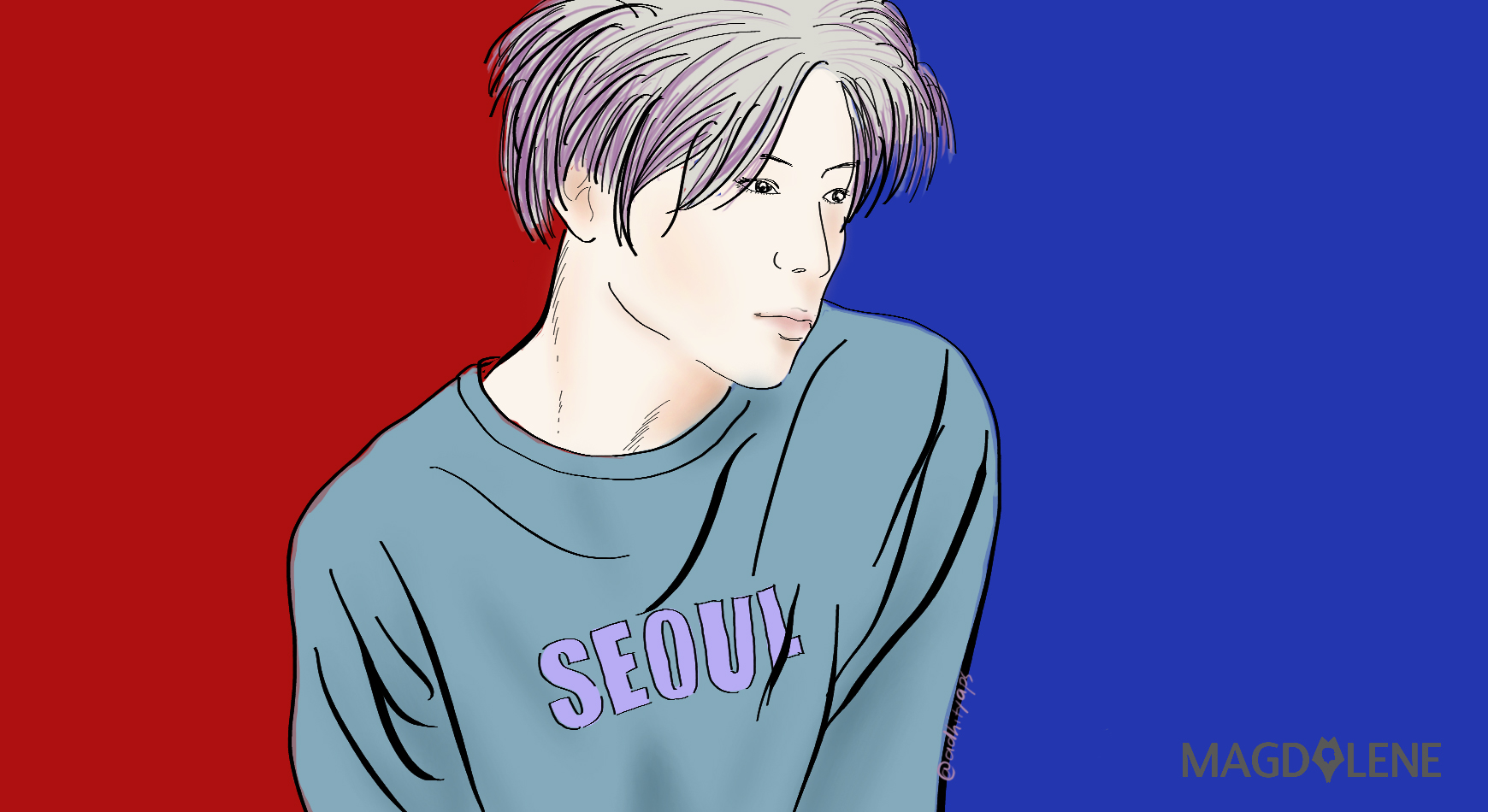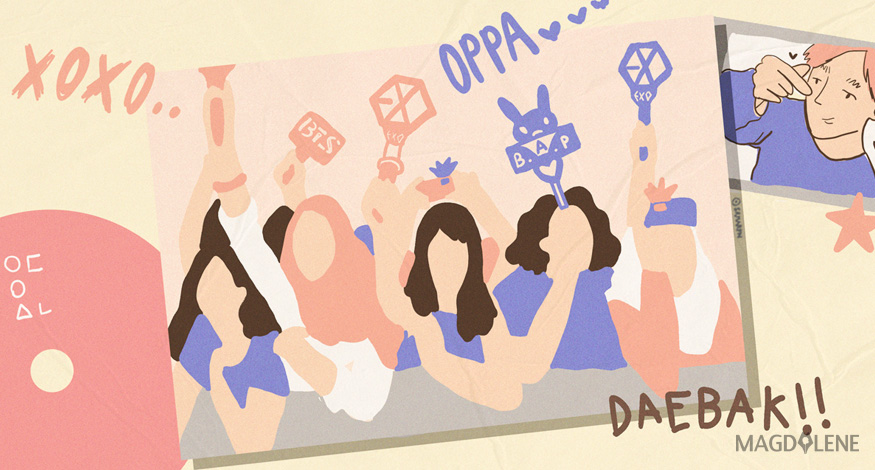BTS and How Idols Help with Your Mental Health
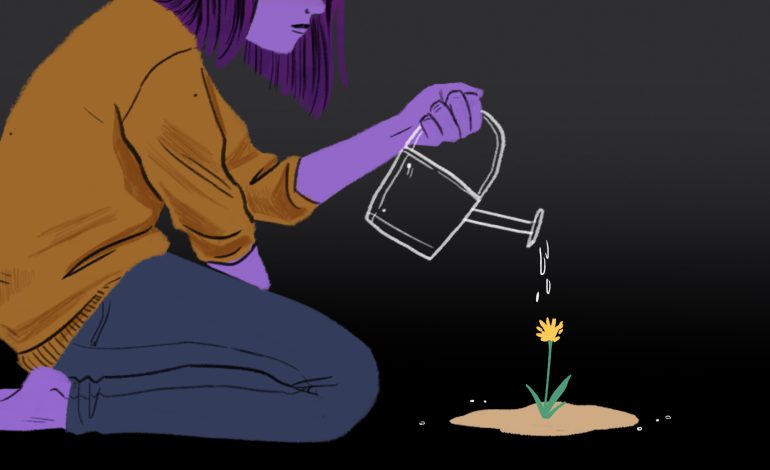
South Korean idol group BTS (Bangtan Sonyeondan/Bulletproof Boy Scouts) is synonymous with their musical achievements including the awards they have received and the socio-political messages in their songs’ lyrics. Recently, they received another award from the MTV Video Music Awards (VMA) music event for Best Pop Video, Best K-Pop, Best Group, and Best Choreography. For me, however, the one thing that distinguishes these seven youths is how vocal they are in voicing mental health issues.
When I turned 20 in 2016, I found myself in the worst year of my life. I did not feel like myself, did not function the way my friends did, and was always haunted by intrusive thoughts. Slowly, I detached myself from the social world, did not communicate with my family, and simultaneously my GPA drastically plunged.
But it was also that year that I stumbled upon the song “The Last” from an album by Agust D, the solo project of a BTS member Suga (real name Min Yoongi).
In the song, Suga or Agust D conveys raw emotion about his own fragility, obsessive-compulsive disorder (OCD) and depression. As a listener, I felt a closeness to the song despite not being a fan of BTS or an ARMY, as they are usually called. The song became one of the many reasons for me to seek help. Of course, the process did not happen overnight, and it took a long time to gather the courage to consult a professional. However, the song can be said as one of the main factors that encouraged my self-reflection process and my understanding of the emotions that I felt.

It would not be the last time the 27- year-old rapper and producer spoke out about mental health. In an interview with E. Alex Jung from Billboard in 2018, Suga expressed that everyone experiences loneliness and sadness, and if we were aware of it, it would create an environment where people could seek help and express their anxiety easily. Suga also recommended a book called About Grief: Insights, Setbacks, Grace Notes, Taboos by author Ron Marasco and Brian Shuff, which talks about grief and the issues that one faces when he/she is mourning.
Quarter-Life Crisis
I am not alone. The sense of closeness to Suga, who is not afraid to talk about mental health issues and his own self-doubts, is also shared by Marsha Imaniara, an ARMY.
“What makes me relate to Yoongi (Suga) is his financial struggle, because I did not come from a well-to-do family, but we worked hard to get to where we are right now. I also relate to his struggles with mental health issues, depression, and doubts,” she told Magdalene.
“Also, the way he can transform that struggle into his own power. I hope I can be like that, become as strong as he is and transform my struggles into something that is positive for me and others, ” she added.
Also read: BTS and ARMY: Dismantling Western Hegemony, Breaking Stereotypes
Marsha said that during 2015 through 2016, she experienced a quarter-life crisis, when a 20-something feels trapped and questions the purpose of life, one’s plan in life, and personal relationships. She felt lonely at the time, finding it difficult to talk about it to other people, and at the same time not wanting anyone else to know about it. She then looked BTS up after being told by a friend, and found a sense of closeness from their music which helped her feel less lonely.
“The themes of their early songs ‘Run’, ‘Save Me’, and ‘I Need U’ relate to the youths’ confusion in navigating their lives. I can relate to their doubts and other challenges they experienced,” Marsha said.
“Not just in the songs, but they are also relatable in real life,” Marsha said. She currently serves as Acting General Manager for PR consultant Maverick Indonesia.
However, the song that clicks with her the most is “Whalien 52” which tells the story of the loneliest whale in the world because it has a different sound frequency than the other whales, so no one has ever heard it singing.
“I already knew the story before knowing BTS. I have felt connected from the start, because sometimes I feel misunderstood or as if no one can understand me. Or if I talk to them, they will not understand either,” Marsha said.
“The whale story conveys the same feeling. Suddenly, BTS came in with the same song. So I feel like we were in the same frequency. They string together all these feelings and doubts into words that I was not able to do,” she explained.

Not lonely
For Marsha, when a figure as famous as BTS feels the same way she feels, it makes her a little less lonely. If BTS feels that way, then there are other people out there who also go through the same thing. That perspective helps her to be more open.
Self-reflection through BTS’ music is also felt by “Ana” through a solo track “Epiphany” by Kim Seokjin (Jin) which explains that the most important thing is to love yourself. Ana stated that she often went too hard on herself, to the point where she couldn’t appreciate anything that she had accomplished.
“It turns out that there is no good in it. If I looked at myself from the outside, I would say, ‘Give it a rest, you have achieved a lot.’ Everything that I did seemed to be lacking and there was always something wrong. Moreover, I was stuck in an imposter syndrome, too,” she told Magdalene.
“Listening to ‘Epiphany’ is like being slapped. We cannot love others without loving ourselves first. I have heard it many times from different sources, but with ‘Epiphany’, the feeling is right. The song encourages us to learn to love and accept ourselves,” she continued.
Ana is an ARMY who works as a civil servant with very high work demands. Some time in 2013, she started to realize that she was experiencing anxiety disorder and depression.
“That time I was so depressed that I could not do anything else. Could not function for about two years. I sought professional help, but the experience was not good and I was traumatized. Then I found a way to survive by running,” she said.
Ana admitted that she was not an athletic person, and running was used as a way to channel the emotions and for self-treatment. She made new friends from that activity, but she did not understand that running could turn her into an endorphin addict. The happiness hormone which results from the activity only lasted one or two hours, so that when it ran out, Ana would start running again.
“Fast forward to 2017, I moved abroad, quite far from Indonesia. I had learned how to confront my (depressive) episodes. BTS also became like an old friend that I had never had. They are really just being themselves. So watching an episode of RUN BTS feels like hanging out with friends,” she said, referring to the K-pop stars’ reality show.
The themes of their early songs ‘Run’, ‘Save Me’, and ‘I Need U’ relate to the youths’ confusion in navigating their lives.
By using their huge platform to talk about mental health issues, BTS becomes a very important figure to carry positive messages. For Ana, bringing up mental health issues makes BTS accessible to people of various backgrounds, ages, and nationalities. The theme of BTS songs is about the anxiety of South Korean youths, but it could also resonate with many people around the world.
“I think it’s very important that they talk about mental health, about being human, because it is a never-ending process. Humans continue to change, just because you are 30 or 40 years old, does not mean you already know yourself. Then when you have already known and accepted yourselves, do you stop being better? Not really,” Ana explained.
“I have ARMY friends over the age of 30. They learned about mental health and about themselves from BTS. They knew they were going through something, but they did not know what it was. These (30-year-old and over) ARMY encourage children to know BTS because they see BTS as something good,” she added.
Marsha also reminded us that if there are other musicians who do not use their platforms for something positive, it is not an excuse to condemn them.
“It takes courage to be vocal on this issue or their own vulnerabilty. We cannot force someone to talk, but we can remind them,” she said.
Parasocial relationships
There is a term called parasocial relationship when we are talking about the relationship between fans and their idols, which is when a fan feels a bond with the idol figure that he/she likes. When someone feels like they are interacting with the celebrity figure, it is a parasocial interaction. This relationship can be a positive or negative one. In terms of having a good influence on one’s mental health, this relationship can be considered as a positive one.
For Ana, BTS came for her in times of loneliness, depression, friendlessness, and when life was stagnant. An old friend introduced her to BTS, and that friend eventually became a close friend of hers.
“Maybe that was also the reason I wanted to know BTS. Aside from liking its contents, I also needed a friend. So this person became one of my close friends. But when I was living abroad in 2017-2020, I needed BTS because I was far away from close friends and family. BTS is the one who accompanies me every day,” she said.
As for Marsha, in addition to helping her in times of a quarter-life crisis, BTS also becomes one of the driving forces that smashes the expectations that actually limits her. Marsha said that there was always a need to perform perfectly in accordance to the image that people have of her, which was a serious, smart figure, and a text-book definition of a good girl. Her love of BTS becomes the fuel to burn that label to the ground.
Also read: The Extreme Pressure Behind the Glamourous K-Pop Industry
“As a form of resistance, I admit to liking BTS and K-Pop. It does not make me superficial; I am still the same, old Marsha. These needs to feel perfect make me afraid to look stupid in public. There are so many things that I want to try, like dancing, for example. After getting to know BTS and then people knowing that I like K-Pop, I am still alive. I became brave enough to join dance classes and even publish the video,” she said.
Marsha also believes that the figures of BTS can be seen as reliable figures in personal context by always being there for fans and cheering for them through the contents that they release. On individual context, BTS is a reliable figure for their integrity.
“For example, when they see something that they don’t approve of, they will voice their position. Or when they make mistakes and offend people, they will admit that mistake and show their growing process transparently,” she said.
Ana said that we needed to be careful with the concept of relying on some famous people, because it means that we are depending on an idol. Thus, she said, it is necessary to understand that they are also human.
“There might come a time when they make a mistake and it’s okay. Therefore, there is a side of me that rely on BTS and their contents, but as a person I need to be cautious. I keep reminding myself that they are only human beings who will make mistakes and learn from them,” Ana said.
Marsha reminded us that if we consider BTS as a friend, do not shut ourselves from other social interactions. Instead, make use of that connection with BTS in a sufficient manner.
“Do not make your life only about BTS. Use all the positive things you got from BTS to help you with your own real life. For example, how to make friends with ARMYs or help with emotional and mental health issues,” she said.
Marsha advised fellow ARMYs to keep being happy because of BTS and have the courage to seek help. Having a person who is able to give you a positive influence is very important. A role model could be anyone else who contribute positively. As for BTS, she wants them to continue to maintain their mental health and take care of themselves so that they can be a positive example.


